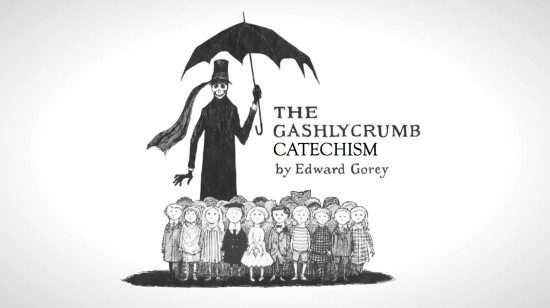Early 20th-century idealism was based on an overly optimistic assessment of human nature. As such it received support from some of the "modern" and "liberal" theologians and church leaders of the time. This view of human nature wasn't compatible with the Christian view, and was resoundingly demolished after the fact by the Neo-orthodox theologian Reinhold Niebuhr.
But this idealism was also rooted in the eschatology of early 20th-century America. You can't get much more millennialist than the idea of a "war to end all war." This optimistic millennialism had competition, even in the 19th-century, from far more pessimistic views. The "premillennialists" did not believe that God's truth was marching on through human history, progressing toward Christ's millennial reign. They believed that this millennial reign would not come until after human history which, they thought, was doomed to end very badly.
This rabidly pessimistic eschatology — called "premillennial dispensationalism" — got a slight boost from the publication in 1909 of the popularizing Scofield Reference Bible, an "enhanced" translation with extensive footnotes explaining the secret, hidden meaning of the scriptures. But that wasn't what made PMD's popularity really skyrocket. That happened, again, with World War I and the youth of Europe lying dead by the millions. The PMDs pessimism suddenly seemed more credible. Scofield's footnotes were updated and republished in 1917 and have been a bestseller ever since.
I should step back here and say a bit more about "millennialism." You've probably heard the term a thousand times, with a thousand different explanations. The word comes from the 20th chapter of St. John's apocalypse, in which we read that Satan will be bound for a thousand years during which Christ will reign as king and all the martyred believers will come back to life and reign with him. Revelation 20:1-6 is a puzzling passage and we don't need to get into a lengthy discussion of its particulars here, but let me just point out that, despite the vast linguistic and cultural distance of the two millennia that separate us, the author of the book of Revelation would not have misread or misunderstood my idiomatic use of the Big Round Number "a thousand" in the first sentence of this paragraph.
Robert G. Clouse, a professor of history at Indiana State University, offers a nice summary of the main competing views of Christian millennialism (reprinted here):
The concept of the millennium and the apocalypse referred to in Revelation has been an important part of certain Christian sects, but it has held less significance for most Roman Catholic and Protestant groups. Believers in Christian millennialism differ about when Christ will return to earth, how the millennium will start, and the nature of the millennium. The three major types of Christian millennialism are premillennialism, postmillennialism and amillennialism.
* Premillennialism stresses a literal interpretation of the Book of Revelation. In the premillennial view, worldwide destruction and the return of Jesus Christ are required to save humanity and bring about a new era of peace on earth. This belief system — also referred to as catastrophic millennialism — generally expresses a pessimistic view of modern society and sees the world as fatally flawed.
* Postmillennialism, also referred to as progressive millennialism, interprets the Bible less literally than premillennialism does. Postmillennialists regard the millennium as a 1,000-year reign of Christian ideals that will end with the return of Christ. In this view, the millennium will not start suddenly through an apocalypse, but gradually through the efforts of human beings. Postmillennialists believe that through social reform and by upholding Christian ideals, the kingdom of God will be built on earth and Christ will return. Christ will then defeat Satan in a final battle, as referred to in the Book of Revelation. Some postmillennialists believe the millennium has already started.
* Amillennialism, the predominant view for much of Christian history, is the belief that biblical references to the millennium are strictly figurative and that there will be no earthly millennium.
Discussion of such categories can be a bit misleading. Prophecy enthusiasts tend to obsess over the dispute between pre- and post- millennial views. This is a bit like trying to divide the world into two factions based on whether they side with Dean or Logan as Rory's ideal love interest. While it's true that several million people may indeed A) watch Gilmore Girls and also B) have a strong opinion about such matters, most people don't and so can't be forced into either of these factions. Such people might be categorized as a third faction, "a-Roryists," but this overstates their investment in the topic.
So let me underscore Clouse's observation that "amillennialism" is "the predominant view" among Christians, but also qualify that to point out that most amillennialists don't spend very much time at all considering themselves amillennialists. As a category, it's only really meaningful for the minority embroiled in the parochial dispute between the pre- and post- factions.
Just because these factions represent a minority, however, does not mean they have not been enormously influential — particularly in America.
The progressive spirit of postmillennialism has informed many movements for social change, including the abolition of slavery, women's suffrage and the temperance movement. Prohibition was the high-water mark of this postmillennialist influence, demonstrating both its ambitious idealism and its naive faith in inevitable progress. It also exhibited the abolitionist tendency of American millennialism. Note that the movement to end American slavery was not called something like "liberationism," but rather "abolitionism" — the goal wasn't only to free the slaves, but to abolish the sin of slavery, thus moving the world one step closer to the perfect, millennial reign of Christ. The intemperate Temperance movement, likewise, sought to abolish alcohol. This abolitionist tendency is no longer firmly connected to its postmillennial roots, but it lives on in American Christianity (see also: Abortion).
The failure of Prohibition, like World War I and the coming of the Great Depression, dealt a severe blow to the relentless optimism of postmillennialism and, beginning in the early 20th century, pessimistic, catastrophic premillennialism became ascendent as the influential minority view in American Christianity and American society.
Pre- and postmillennialism can be viewed in the terms of Niebuhr's Serenity Prayer, each representing an unbalanced extreme. The post- view is unable to accept the things it cannot change — or even to accept that some things cannot be changed. The pre- view is convinced that nothing can be changed, that no amount of courage is worth the trouble because nothing can be fixed until Jesus comes back.
The two views can also be viewed in the terms of what Niebuhr regarded as the most grievous of sins: pride and despair. Postmillennialism suffers from pride. It is idealistic but naively optimistic — about the perfectability of human society and human nature, about the potential for unambigously good outcomes, about the inevitability of progress. Premillennialism suffers from despair. It is all too willing to give up and await its deus ex machina happy ending. Postmillennialists are certain that the world is getting better and better, becoming more and more like heaven until finally Christ himself will arrive to declare a heavenly kingdom on earth. Premillennialists are certain that the world is getting worse and worse, becoming more and more like hell until finally Christ himself will arrive and send it there personally.
(Again, these views are not the only options. Nor are they the only resources for hope or humility. Since we've been talking so much about Niebuhr, you might want to consider, as an example of a different approach, the movement led by one of Niebuhr's students, the Rev. Martin Luther King Jr.)
But let's get back to my particular concern here. I'm trying to reconcile two apparently irreconcilable things.
The foreign policy of the Bush administration appears to be shaped by two major influences: 1) the millennarian optimism of PNAC, and 2) the premillennial pessimism of the Republican religious right. How are these things in any way compatible?












